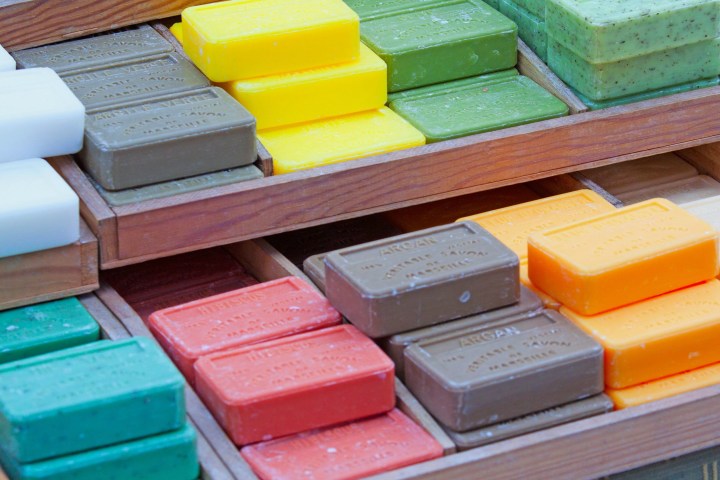
“Our research team has invented a new soap molecule that is made from renewable resources and works in a broad range of conditions,” Paul Dauenhauer, associate professor of chemical engineering and materials science, told Digital Trends.
These “renewable resources” include natural products such as soybeans, coconut, and corn, compared with existing soaps that are made from fossil fuels. Such soaps are regularly mixed with harmful chemicals in order to produce shampoos, hand soaps, and detergents.
“The class of molecules that soaps fit into is called surfactants, which is a multibillion dollar industry,” Dauenhauer continued. “Surfactants are used in a lot of applications where they will end up in lakes, rivers, and streams.”
By comparison, the soap molecule developed by the University of Minnesota works better than the alternative That’s particularly evident in cold or hard water conditions, where regular soaps struggle. To combat this, chemists in the cleaning products industry add harmful chemicals in order to achieve better results.
“Our molecule works in many complex conditions, such as hard water that contains extra metals,” Dauenhauer said. “This means that the detergent could potentially be used without the extra chemicals, and it could be used as an ingredient in products with significantly smaller ingredients lists.”
Dauenhauer explained that the project was developed as part of a U.S. Department of Energy research grant focused on making renewable products from plants such as trees and grasses. From here, he hopes that new soaps based on the new class of molecules will help disrupt the industry — in a way that will improve things for everyone.
“There exist a large number of products that could benefit from using this new class of molecules,” he concluded. “We anticipate a significant potential impact that could easily be identified by these new molecules showing up in the ingredients lists of products bought at the store by the average consumer.”
Let’s hope it gets to market soon. Because if it works as well as Dauenhauer says, this new type of soap could really clean up — in both senses of the word.


